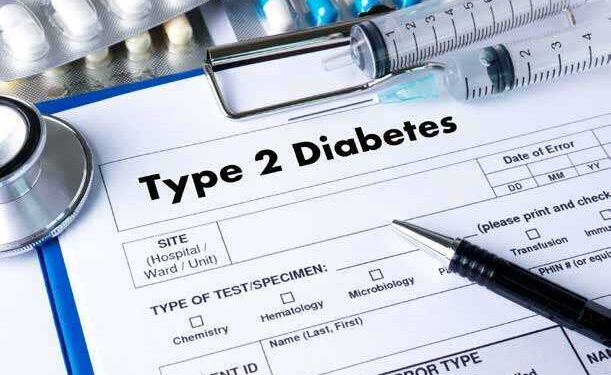The National Office of Clinical Audit (NOCA) has announced the publication of the National Paediatric Diabetes Audit Feasibility Study Report.
There is no National Diabetes Registry of people living with diabetes in Ireland, therefore all national estimates might not be fully accurate. However, as per a parliamentary question asked of the HSE in September 2021 regarding the prevalence of Type 1 diabetes in Ireland, figures were obtained using the data modelled from the Scottish Diabetes Register.
The Irish Longitudinal Study on Ageing (TILDA) 2015 showed that 10% of adults aged 50 and over in Ireland, have Type 2 diabetes rising to 16% in those aged 80 and over. This study further revealed that one in ten people with diabetes in this population are undiagnosed. A further 5.5% of the older population have pre-diabetes which puts them at an increased risk of developing Type 2 diabetes in the future.
The study also found that Type 2 diabetes was more common in men (12%) than women (7%) and a self-reported history of hypertension, high cholesterol, being centrally obese and having low levels of physical activity also had strong relationships with both diabetes and pre-diabetes.
Burden of diabetes
The burden of diabetes is continuously increasing. According to a systematic review of Irish evidence on epidemiology of diabetes and its complications, which included 15 studies published before 2016, in adults aged 18 years and over, the national prevalence of doctor diagnosed diabetes significantly increased from 2.2 % in 1998 to 5.2 % in 2015. The prevalence of diabetes complications varied ranging from 6.5 to 25.2 % for retinopathy; 3.2–32.0 % for neuropathy; and 2.5-5.2 % for nephropathy.
According to the International Diabetes Federation Atlas 2021 Ireland is ranked 7th in the world for diabetes related health expenditure per person.
The economic burden of diabetes on the Irish health care system is becoming a major challenge for the government and the HSE.
According to national estimates comparing health-service use between people over 50 with and without diabetes (data from years 2009-2011), diabetes was associated with an 87% increase in outpatient visits, a 52% increase in hospital admissions and a 33% increase in emergency department attendances.
Although we have no diabetes register or way to monitor the costs associated with diabetes, the CODEIRE study (2006) suggests that costs associated with diabetes consume between 4% and 6% of the annual healthcare expenditure in Ireland (¤377.2 million to ¤580.2 million in 2006) If the same percentage (4-6%) applied to the healthcare expenses in 2019, the costs would have been as high as ¤1.2 billion to ¤1.4 billion, with most of the costs (approx. 50% according to the CODEIRE study) associated with hospitalisations and treatment of complications. There is a need to further evaluate the economic costs of diabetes-related healthcare expenses in Ireland.
The incidence of type 1 diabetes mellitus (T1DM) among children and young people in Ireland is one of the highest in Europe, with diabetes incidence rates in the top 25% worldwide. Over the last 25 years, the incidence rate has risen from 16.3 cases per 100,000 population <15yrs in 1997 to 27.3 per 100,000 in 2008 but more recent data shows a stabilisation of the rate to 27. cases per 100,000 population in 2018. Management of this chronic condition places huge demands on affected individuals, their families, and the health service. Paediatric T1DM care requires prioritisation because of its high incidence and the significant long-term consequences of suboptimal care.
No national paediatric diabetes audit (NPDA) exists in Ireland, and available data originate from single-centre, stand-alone, or retrospective studies. The lack of reliable data precludes healthcare professionals from making informed decisions about how to improve services, and means that disparities in paediatric diabetes care may not be identified. A national audit of paediatric T1DM will highlight areas of good practice, identify areas for improvement and will support data-driven resource allocation.
Emer Gunne, Public and Patient Interest Representative remarked, “Our daughter has had a very positive experience on her patient journey, from an early diagnosis without diabetic ketoacidosis at the age of 11 years through to independently managing her diabetes with her diabetes pump at the age of 14 years, and we envisage a smooth transition to adult services on the horizon in a few years. All children, regardless of which centre they attend in Ireland, deserve to have the highest level of care when diagnosed with type 1 diabetes mellitus (T1DM). Being involved in this feasibility study has meant that I have been able to use our daughter’s experience to be part of the process of improving care for the many children who will be diagnosed with T1DM in Ireland in the future”.
This study recommends the development of a National Audit of T1DM, with a phased approach. The first phase includes all paediatric T1DM patients aged under 16 years who attend the 19 paediatric centres nationally.
Phase 2 involves extending the audit to include affected young adults aged 16-25 years and Phase 3 will incorporate all patients with T1DM nationally. An Individual Health Identifier (IHI) for all with T1DM would support successful implementation of this audit and would allow linkage to existing datasets. Electronic data capture is essential to allow complete, accurate and efficient data collection.
Professor Nuala Murphy, Chair of the National Paediatric Diabetes Audit Feasibility Steering Committee commented, “As a country, we invest a lot of money in diabetes care over each patients journey but at the moment, most of this spend is in treating preventable diabetes related complications. We know that tight blood glucose control has been shown definitively to prevent diabetes related complications, so investing early and empowering patients to achieve good control makes sense. Audit allows us to see what we are doing well and what we need to improve and we are outliers in international terms as we do not currently have a national paediatric diabetes audit. This feasibility study supports the need for an audit and the next phase is audit development and implementation.”










